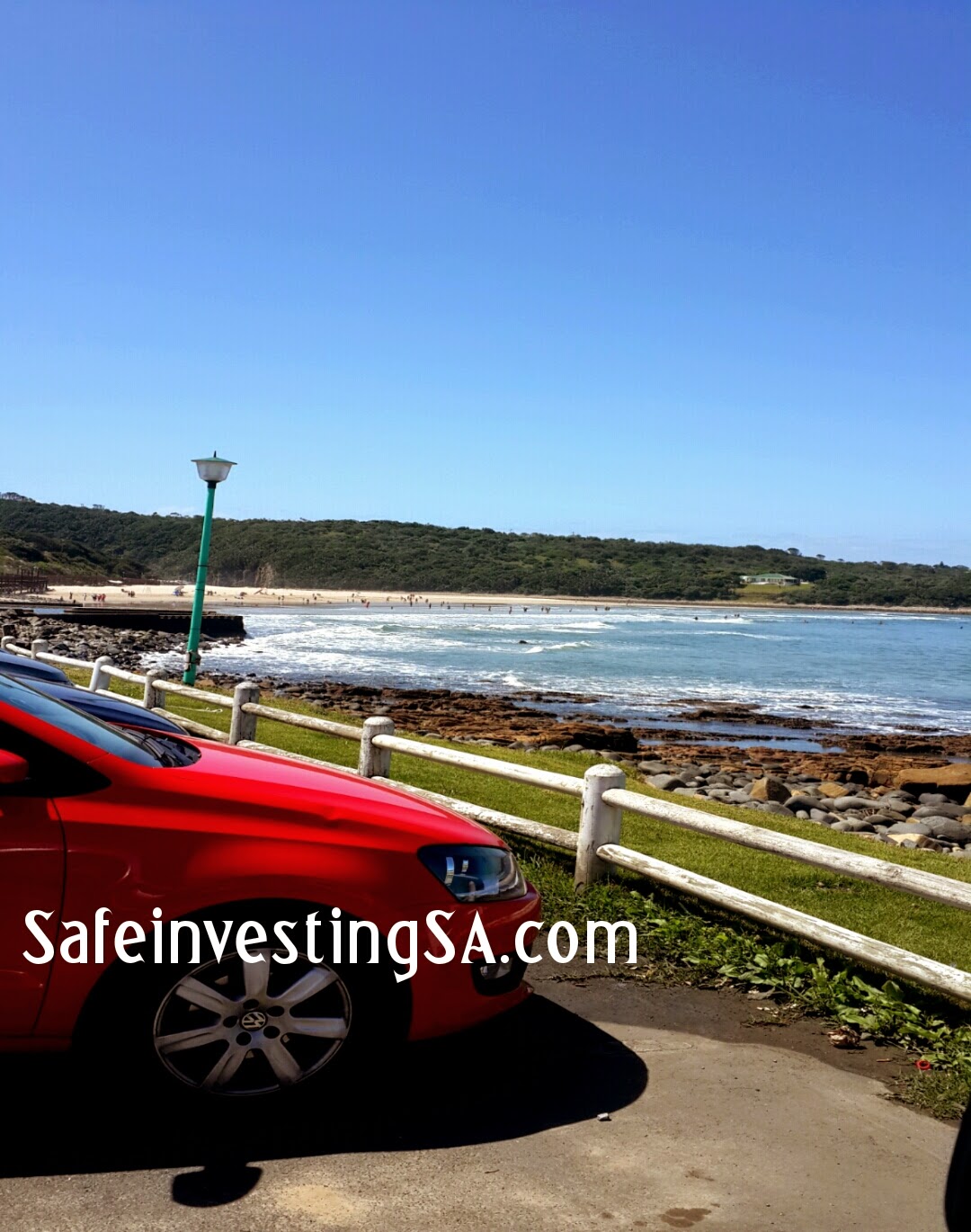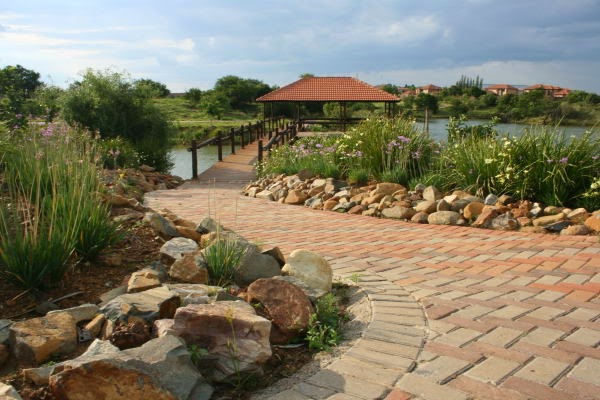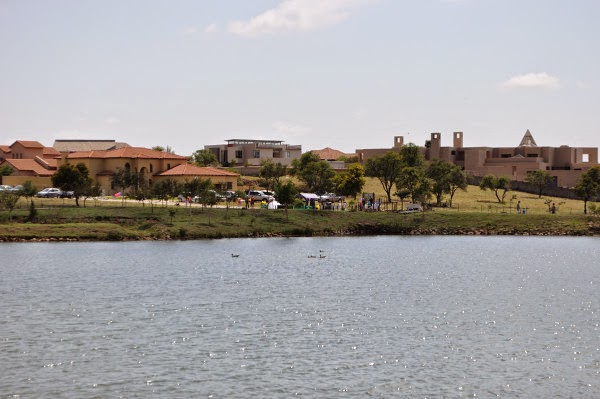During a debate on one of the Facebook forums, one of my friends mentioned how possible it is to earn interest on a credit card. It is after said debate that a reader asked me about it. I promised to do a blog post about it. Hence this blog post at an awkward time for most of us to be working. Before we get into the credit card interest issue, I have to inform you that this blog will get a face lift in a week or so. I am excited as I believe this new look and feel will enable better interaction.
We were still on the subject of using the credit card as a savings tool. Those who have been following this blog for a while know that I love writing about what I do. Whilst I do not personally have a credit card, the hubby does have one. We use it responsibly and never pay any interest on it.
Do you know that you have a 55 days interest free period on a credit card? That is almost two months of free debt. We have used that option every time we used his credit card. When we bought a PC for instance, we paid it in two installments within our 55 days. That meant that we saved the half of the price elsewhere to benefit from the savings account interest and paid it the following month within our 55 days window period.
Do you also know that there are free credit cards in terms of fees? YEP! The hubby's is 100% free. We don't pay any annual fees or any fees at all. We never pay any interest because we hardly ever use it. And when we do, we pay it in full within the 55 days. So the hubby is allowed to keep his card for those reasons. As for myself, I carry one of the consumer store cards. That is the only store card in my name. That one card has a 6 months interest free period when used. I sometimes never get to use it for a full year until the store sends me those vouchers to go spend on some stuff. Debt is one of the things that I absolutely dread. I am not likely to get benefits that require having debt.
Apart from the 55 days interest free period and other benefits, it is also true that one can earn interest on a credit card with a credit balance. I am told that this is not the case will all credit card types and/ or banks. I think it is the case with most South African credit cards though. When an account has a positive balance, one earns interest which is calculated from the day the money got into their credit card account. I have seen earnings of 2.5% per annum from two of our South African banks. I can assume that this is more or less the interest one can earn on their credit balance from banks that offer this benefit. Given this, we can safely draw a conclusion that a credit card can be an amazing personal finance tool. Benefits like that of an interest free 55 days, interest on credit balance and cost free transactions when making local payments qualify it to be an amazing tool. Another advantage is that of getting rewards like the cash back when using a card linked to some reward scheme.
Part of me is scared that this makes a credit card look more attractive than I wish it did. But I have to emphasise my preference for being debt free compared to having good debt. Consumers who cant resist shopping should just steer clear of any possibility of debt. I know people who easily get addicted to a "SALE" sign. You would think that they are getting the stuff they buy for free. Just stay away from the credit card or any store card if you are a shopaholic. The interest free period and even the interest you can earn is just not worth it if you cannot keep your distance from the store tills and card swiping machines.
The other reason this 2.5% is not worth it is that, your money market account will give you a much higher interest on a positive balance. Your money market account funds are also available instantly. You may also try and get one of those debit cards that earn interest on a positive balance to avoid getting into unnecessary debt.
What your bank is hoping to achieve with this benefit is that:
And now, because I like experimenting, I will arrange for my own copy of the hubby's credit card. I will then put my monthly grocery money into it every month of the experiment. We do our groceries weekly. This will mean that we will get to keep the three quarters of our food budget in the credit card for a week, two quarters for two weeks and the last quarter for a week earning a little interest. This experiment is definitely not likely to earn a significant amount of interest but is worth a try. I will then come back and report on how it went after a few months.
Are you planning to try and earn interest on a credit card too? Please share if you do.
Enjoy your holidays!
We were still on the subject of using the credit card as a savings tool. Those who have been following this blog for a while know that I love writing about what I do. Whilst I do not personally have a credit card, the hubby does have one. We use it responsibly and never pay any interest on it.
Do you know that you have a 55 days interest free period on a credit card? That is almost two months of free debt. We have used that option every time we used his credit card. When we bought a PC for instance, we paid it in two installments within our 55 days. That meant that we saved the half of the price elsewhere to benefit from the savings account interest and paid it the following month within our 55 days window period.
Do you also know that there are free credit cards in terms of fees? YEP! The hubby's is 100% free. We don't pay any annual fees or any fees at all. We never pay any interest because we hardly ever use it. And when we do, we pay it in full within the 55 days. So the hubby is allowed to keep his card for those reasons. As for myself, I carry one of the consumer store cards. That is the only store card in my name. That one card has a 6 months interest free period when used. I sometimes never get to use it for a full year until the store sends me those vouchers to go spend on some stuff. Debt is one of the things that I absolutely dread. I am not likely to get benefits that require having debt.
Apart from the 55 days interest free period and other benefits, it is also true that one can earn interest on a credit card with a credit balance. I am told that this is not the case will all credit card types and/ or banks. I think it is the case with most South African credit cards though. When an account has a positive balance, one earns interest which is calculated from the day the money got into their credit card account. I have seen earnings of 2.5% per annum from two of our South African banks. I can assume that this is more or less the interest one can earn on their credit balance from banks that offer this benefit. Given this, we can safely draw a conclusion that a credit card can be an amazing personal finance tool. Benefits like that of an interest free 55 days, interest on credit balance and cost free transactions when making local payments qualify it to be an amazing tool. Another advantage is that of getting rewards like the cash back when using a card linked to some reward scheme.
Part of me is scared that this makes a credit card look more attractive than I wish it did. But I have to emphasise my preference for being debt free compared to having good debt. Consumers who cant resist shopping should just steer clear of any possibility of debt. I know people who easily get addicted to a "SALE" sign. You would think that they are getting the stuff they buy for free. Just stay away from the credit card or any store card if you are a shopaholic. The interest free period and even the interest you can earn is just not worth it if you cannot keep your distance from the store tills and card swiping machines.
The other reason this 2.5% is not worth it is that, your money market account will give you a much higher interest on a positive balance. Your money market account funds are also available instantly. You may also try and get one of those debit cards that earn interest on a positive balance to avoid getting into unnecessary debt.
What your bank is hoping to achieve with this benefit is that:
- You will get a credit card with the intention of using it wisely and benefiting from the interest on positive balance;
- You will then deposit your spending money into the credit card to earn the interest on the credit card in question;
- You will go ahead and buy stuff you don't need just because you have "provision" for it;
- Over time you will go beyond the positive balance because you can, and luckily for you there is still the 55 days interest free. You are safe from paying interest;
- It will finally go out of hand that you miss the payment until after the 55 days. Then they get to charge you gigantic interest. The interesting part is that, you pay them about 10 times what they pay if they owe you. They give you about 2.5% per annum when they keep your money, and you may even pay 25% for owing them.
And now, because I like experimenting, I will arrange for my own copy of the hubby's credit card. I will then put my monthly grocery money into it every month of the experiment. We do our groceries weekly. This will mean that we will get to keep the three quarters of our food budget in the credit card for a week, two quarters for two weeks and the last quarter for a week earning a little interest. This experiment is definitely not likely to earn a significant amount of interest but is worth a try. I will then come back and report on how it went after a few months.
Are you planning to try and earn interest on a credit card too? Please share if you do.
Enjoy your holidays!








